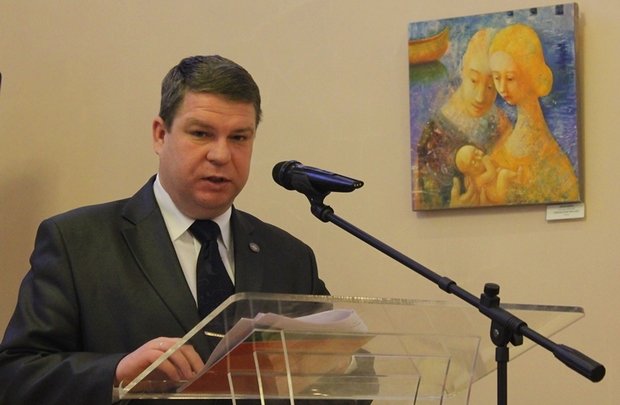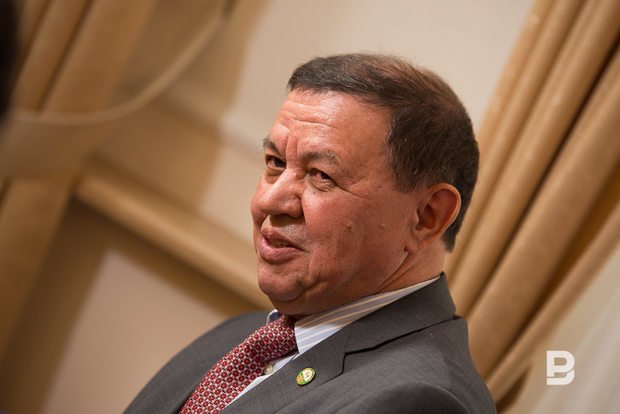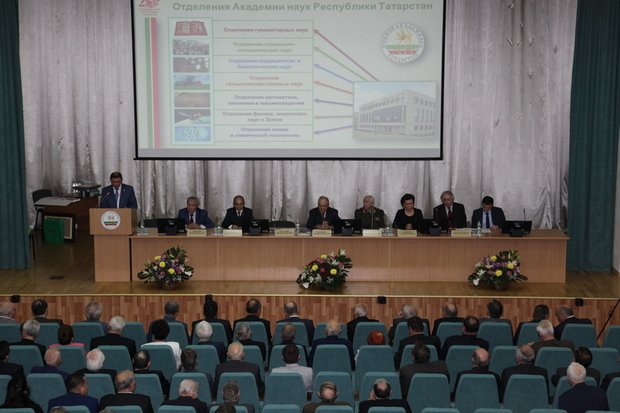Auditors at academics’: fleeing postgraduate students, fake VAT and boom in publications
Violations at 12 million rubles revealed at the Academy of Sciences of Tatarstan with a three-year funding of 1,87 billion rubles
Realnoe Vremya has obtained the audit materials of the Tatarstan Academy of Sciences. It turned out that the auditors from the Accounts Chamber of the Republic of Tatarstan found violations in the amount of about 12 million rubles over the period 2014-2016. At the same time, the total amount of financing of the structures of the Academy of Sciences of the Republic of Tatarstan in the same years approached 2 billion rubles. Besides, the auditors noted an increase in the number of scientific publications per employee and the overall aging of the staff of the Academy of Sciences of the Republic of Tatarstan, as well as a fall in the proportion of studies applied in practice. Read more in the material of Relnoe Vremya.
Archaeological VAT
The Accounts Chamber of Tatarstan has completed the audit of effectiveness of the use of the republican budget, which was allocated to the Academy of Sciences of Tatarstan to conduct fundamental scientific research in 2014-2016 and the first half of 2017. The total amount of these funds amounted to 1,873 billion rubles.
According to auditor Sergey Kolodnikov, the total amount of revealed violations amounted to 11,8 million rubles, 4,5 million rubles of which is in management and disposal of state property. The auditor cited several examples of such violations.
The centre for Islamic studies in the period under review did not use video conferencing system worth 208,000 rubles. In the stock of the academy it was revealed the remains of unclaimed scientific literature at 120,000 rubles.

In 2016, the academy entered into two contracts with Bolgarian archaeological expedition PLC (the founder — Igor Grigoryev. According to SPARK, another three companies are also registered on this person) to prepare materials for creation of original layout of the book The Historical Atlas of the Republic of Tatarstan and holding of the International Congress of Islamic Archeology. To the amount specified in the contracts, the academy unreasonably included and paid VAT in the amount of 1,1 million rubles, despite the fact that the PLC is not a tax payer. Quite enterprising, you must agree…
Another 300,000 rubles the academy overpaid for non-residential premises rented from FSUE Kazan scientific centre of the Russian Academy of Sciences.
The art of planning
The auditor also highlighted another peculiarity of how the academy uses budget funds. The thing is that the academy does not have standards that allow to determine the cost of particular works. Thus, the amount of the budget allocations to the academy is not tied to the volume of planned research work.
Besides, the audit revealed that on the academy's accounts at the end of the financial year there remained unused significant cash balances, from 7 to 11% of the annual funding. According to the auditor, this suggests that there are available reserves for planning the costs of the institution. There is something to think about to the leadership of the stronghold of Tatarstan science.

Self-criticism is welcomed
The report on the results of the audit has been sent to the Cabinet of Tatarstan, which is the founder of the academy. In addition, the audit materials have been sent to the prosecutor's office of the republic.
President of Tatarstan Academy of Sciences Myakzyum Salakhov prudently commented (he accompanies the audit's materials) on the results of auditors' work. He reminded that in 2014 the academy was reorganized by joining scientific institutions and subsequent reduction of the staff of researchers, and this process was quite difficult. In the order of self-criticism Salakhov also stated that the analysis of the Accounts Chamber ''really helped, forcing to look at some things from different perspective.''
There are also successes
In addition to violations, the auditor also announced positive results of the inspection. The most significant is an increase by 60% in the number of publications per researcher. The Academy of Sciences of the Republic of Tatarstan even managed to save: budget expenditures for one scientific research decreased by 17,4%. If in 2014 this figure was 4,5 million rubles, then in 2016 — 3,7 million rubles.
The number of registered patents for inventions increased from two to seven. In addition, in 2017 the academy updated the list of directions, on which they base when preparing annual plans for research and which had not been updated since 2012.
But the fact that the share of studies applied in practice decreased from 67% to 61% during the analyzed period casts a dark shadow on the situation.

Academicians got old, postgraduate students do not want to stay in the academy
The audit has shown that the number of full-time researchers in the structural divisions of the Academy of Sciences of the Republic of Tatarstan decreased from 370 people in 2014 to 293 in 2016. Partly, the trend is related to the reorganization mentioned above. At the same time, the actual number of researchers in the staff of the academy and its institutions, which are its structural units, is significantly higher than the regular staff due to the involvement of external part-time employees at rates from 0,1 to 0,8. These reserchers have a primary place of employment in other scientific organizations.
According to the explanations of the academy's management, the involvement of large number of external part-time employees is due to the lack of regular narrow specialists in certain areas of scientific activity.
The average age of researchers has increased from 42,6 years in 2014 to 45,4 years in 2016. At the same time, the number of employees under 39 years has decreased by 12% in 2 years (from 155 to 136 people).
The number of doctors and candidates of science among the staff of the academy have increased from 195 to 227 people, and the proportion of employees with a degree — from 53% to 78%. However, during the same period the number of doctoral and master's theses defended have decreased by 37%, or from 62 to 39 works.
The number of people who graduated from postgraduate studies and remained to work in the departments of the academy has halved. The number of postgraduates who are authors of scientific works has decreased by 37%.
''Unfortunately, the interest in science among the younger generation is not the same as before. But our potential is still in demand,'' explained the situation Salakhov in the official comment.